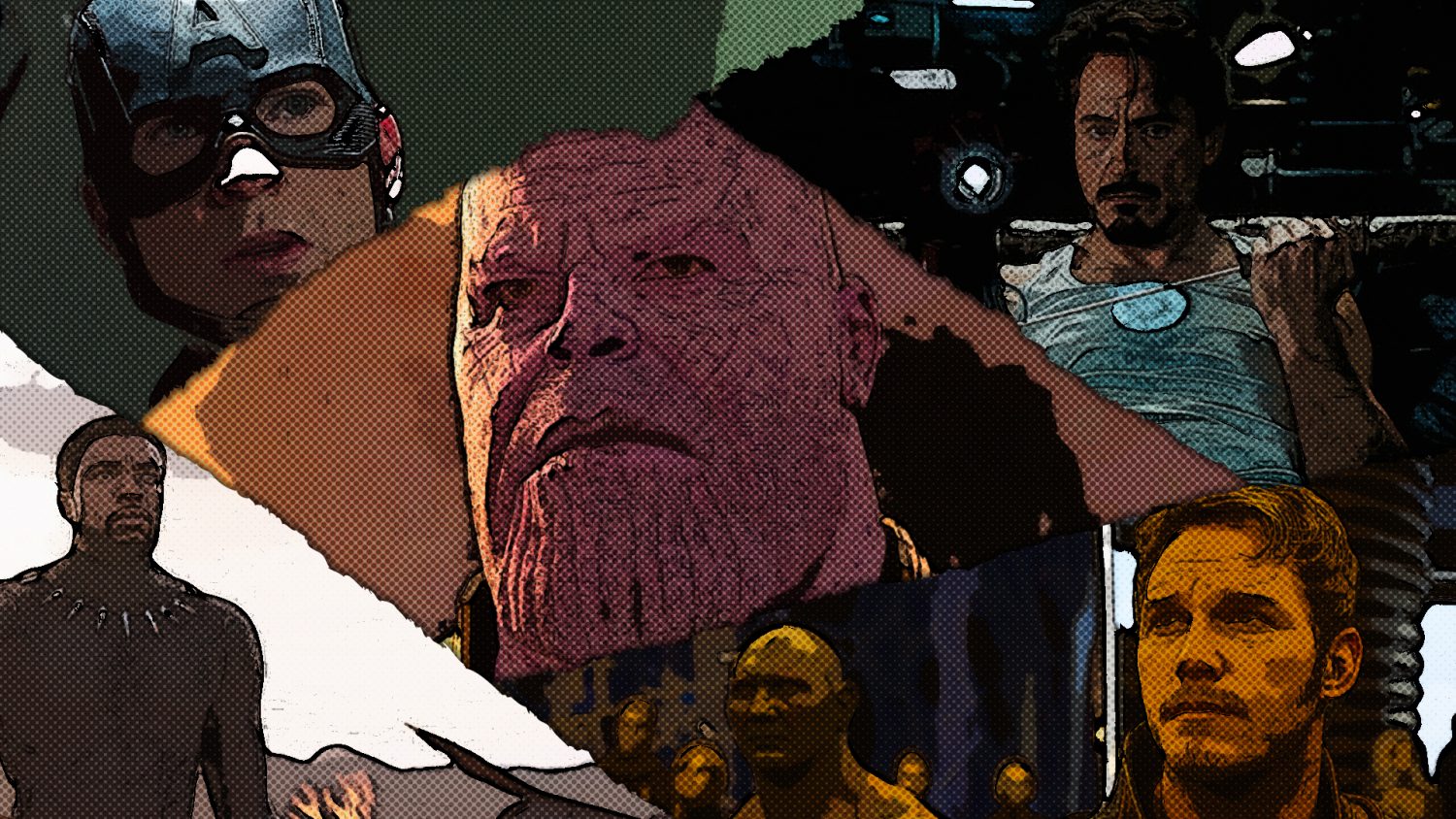* Pre-Endgame MCU Spoilers Ahead (You’ve Been Warned!) *
The stakes have never been higher within the Marvel Cinematic Universe (MCU), as Phase Three (the films of which include Captain America: Civil War, Doctor Strange, Guardians of the Galaxy Vol. 2, Spider-Man: Homecoming, Thor: Ragnarok, Black Panther, Avengers: Infinity War, Ant-Man and the Wasp, Captain Marvel, and Avengers: Endgame) approaches its dramatic, epic finale. Avengers: Infinity War brought to the forefront the seemingly ultimate stake in the MCU: death. However, death isn’t the only stake.
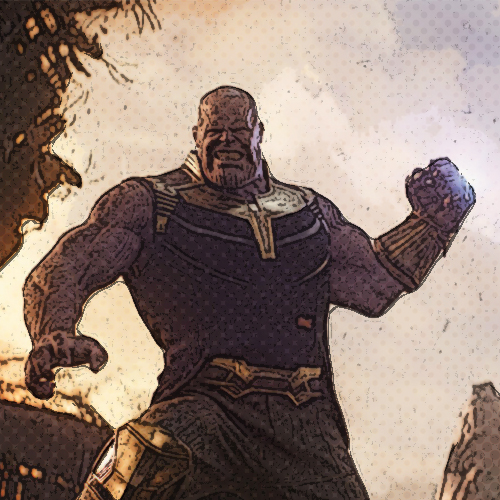
Right now, after Thanos (Josh Brolin) finally gathered every Infinity Stone, harnessed their collective power in an Uru gauntlet on his hand, snapped his fingers, and annihilated half of the population of the universe, death just happens to be the stake at the front of every MCU fan’s mind. When one looks at the bigger picture, though, there are a multitude of different stakes that are, in a sense, equally important within each film’s respective narrative. After Avengers: Endgame, will death be the most important stake in the MCU anymore? Has it ever been? It is likely that more than a few of the fallen Avengers will be resurrected, somehow, during Endgame. With the film’s April 26, 2019 theatrical release finally upon us, let us take a look back in retrospect at the varying degrees of stakes throughout the last three phases of the MCU.
Moral, Personal, & Romantic Stakes in Captain America
Steve Rogers (Chris Evans) wasn’t always the scientifically-altered super-soldier known as Captain America. Captain America: The First Avenger serves as an origin story for the founding father of The Avengers. Indeed, Rogers has come a long way since his days as an underdeveloped kid always bullied, but never backing down from defending himself. Within the film, there are three different stakes introduced in the story that create conflict and add tension: moral, personal, and romantic.
In a sense, over the course of the 74 years since the events of The First Avenger, Rogers has always been trying to find his way back to Carter.
The idea of fighting Nazis isn’t solely a moral motive for Rogers. It’s personal. He has a chip on his shoulder. Something to prove. Before his physical transformation, he was a short, scrawny, sickly young man, desperate to join the military. His intentions were pure. However, he couldn’t pass the entrance exam. He tried countless times, falsifying application forms to better his chances each attempt. Rogers uses everyone, including his best friend, Sergeant James Buchanan “Bucky” Barnes (Sebastian Stan), who told him he wasn’t cut out for it, to the bullies who used to beat him up, to the heroes that he looks up to in the military, as fuel to keep trying. Another layer of personal stakes rears itself once again as Rogers vows to “avenge” Barnes’ supposed death and confront the Red Skull (Hugo Weaving) in the The First Avenger’s climax.
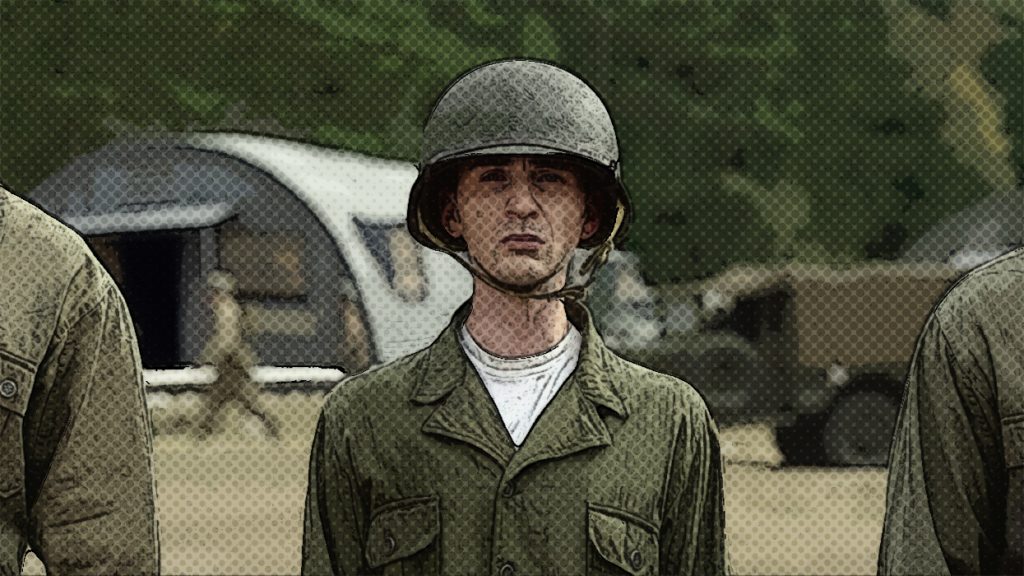
Rogers and Agent Margaret “Peggy” Carter’s (one of the original members of the Strategic Homeland Intervention, Enforcement and Logistics Division, or S.H.I.E.L.D., portrayed by Hayley Atwell) tainted love is bound by a tragic fate. One of Roger’s primary motivators throughout the film is to get back to Carter so that they can have that first dance that he promised her. It’s a metaphor for taking their relationship to the next level. Obviously, Rogers and Carter never had that chance. In a sense, over the course of the 74 years since the events of The First Avenger, Rogers has always been trying to find his way back to Carter.
Parental Stakes in Ant-Man
In Ant-Man and Ant-Man and the Wasp, our protagonist, Scott Lang (Paul Rudd), has a clear set of goals from the beginning: secure an honest job that doesn’t involve burglary in order to see his daughter, Cassie (Abby Ryder Fortson). Cassie is his number one priority from day one. Before he becomes Ant-Man. Before all the responsibilities that come with being a superhero engulf him. Even after his transformation into Ant-Man, Cassie remains the most important “mission” in his life.
At any moment, Scott risks violating his parole and losing all custodial and visitation rights with Cassie, entirely. Every mission puts him at risk of losing his only child. Furthermore, If he consistently continues to let his ex-wife, Maggie (Judy Greer), down, she won’t be as inclined to help him with his legal struggles, and Cassie’s larger-than-life, pun totally intended, image of her father will implode, breaking her gigantic heart. This conflict, this narrative, doesn’t change throughout the franchise. No matter what mission Ant-Man or The Avengers are tasked with, Scott will always be fighting for his daughter, first and foremost. Even in Avengers: Endgame.
Crisis of Conscience in Iron Man
Tony Stark (Robert Downey Jr.), or Iron Man, like many superheroes, was born out of pain and suffering. However, Iron Man wasn’t only born out of Tony’s suffering, but also the suffering of millions of innocent lives lost at the hands of Stark Industries (the world’s leading weapons manufacturer), over the years. Tony Stark became Iron Man as a result of the sins of his father, Howard Stark (Gerard Sanders), who founded Stark Industries. Make no mistake, Tony’s hands aren’t clean, either. As CEO of Stark Industry and chief weapons manufacturer for the U.S. military, he knowingly funded, fueled, and perpetuated the military-industrial complex, initially, without so much as a second thought or any regard for the destruction he was creating. That is, until he was kidnapped in Afghanistan by the Ten Rings terrorist organization, led by Raza (Faran Tahir) – the MCU’s first villain, and with Stark weaponry nonetheless.
Tony’s conscience is never cleared in the MCU. Every decision he makes, he does so to atone for his past…
After this near-death experience, Tony severs ties with the U.S. military, and focuses all of his genius on creating advanced exoskeleton suits, vowing to protect the world and act as a peacemaker, not a warmonger. Tony’s conscience is never cleared in the MCU. Every decision he makes, he does so to atone for his past, with his atonement reaching its peak in The Avengers during the Battle of New York, where he nearly makes the ultimate sacrifice, almost dying saving the city from annihilation.
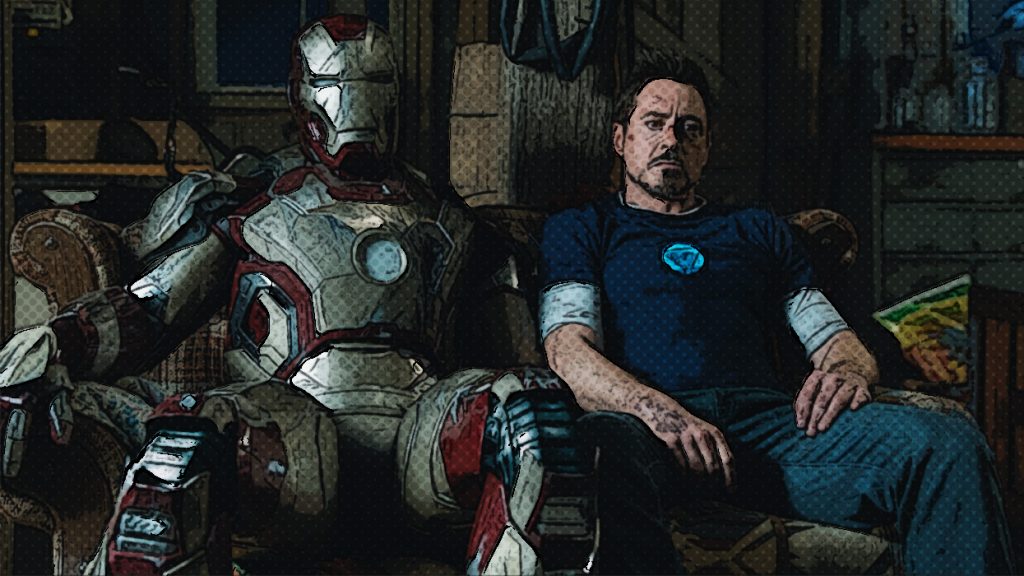
Emotional Ramifications in Iron Man 3 & Beyond
In Iron Man 3, Tony suffers from post-traumatic stress disorder, experiencing waves of anxiety attacks, manifesting themselves physically and emotionally, as a direct result of his experience during the Battle of New York seven months prior. Not only does it put a strain on his and Pepper Potts’ (Gwyneth Paltrow) relationship, but one can assume that it severely inhibits his quality of life, let alone the ability to fight against his enemies. Iron Man may appear to overcome his adversity after Iron Man 3, but simply because the following films in the MCU haven’t focused on Tony’s fragile mental state, it doesn’t mean that he isn’t still suffering from PTSD. After all, it isn’t an easy fix. Like many people with a violent, traumatic past, Tony’s pain is constant, buried deep beneath his over-confident exterior.
Familial Stakes in Guardians of the Galaxy
Peter Quill (Chris Pratt), more commonly referred to as his superhero alter-ego, Star-Lord, or, at least that’s what he’d like to have the galaxy believe, has a markedly mysterious family lineage. His mother is from Earth, however, he never knew his father. In Guardians of the Galaxy: Part 1, it is alluded to the fact that Quill’s father might be of extraterrestrial origin when Quill is able to hold the Power Stone (one of the six Infinity Stones), something that no normal being can do without dying. In Guardians of the Galaxy: Part 2, we learn that Quill’s father is, in fact, Ego (Kurt Russell), a Celestial: a primordial race of entities in the universe capable of manipulating matter and energy and known for their destructive use of the Infinity Stones. As the name would suggest, Ego is a delusional, narcissistic being so self-obsessed that he created an entire planet to match his essence and personality.
Quill is reminded that, sometimes, the purest families are the ones that you create.
When Quill finally meets his father, he is intoxicated by not only his power, but also by the surrealistic nature of finally reaching the end of a lifelong search to find a “real” family. His judgment is clouded by Ego’s cunning and convincingly trustworthy demeanor. When he discovers Ego’s genocidal plans, he must make the tough decision to kill his biological father, almost dying before Yondu makes the ultimate sacrifice to save him. All along, Yondu, the person whom he blamed the most for being taken from his home, was more a father to him than Ego could ever be. Quill is reminded that, sometimes, the purest families are the ones that you create.
Cultural Stakes in Black Panther
In Black Panther, Wakanda sits on the largest, and only, known source of vibranium. From an outsider’s perspective, it looks like a third world country so as to protect the centuries-ahead-of-its-time technology from those that may wish to use it for insidious intentions, particularly colonizers (or peoples of white-European descent with a history of decimating the countries of Africa and beyond). Those fortunate enough to visit the inside of Wakanda immediately notice an advanced country that has progressed at a far greater rate than the rest of the world, without sacrificing its traditional African culture and values, something that very few countries in the real world have managed to do in a society consistently dominated by imperialistic regimes. With technological advancement tends to come the loss of values in lieu of the blind pursuit of progress. This is not the case with Wakanda, a peaceful nation willing to do anything to keep their country, culture, and technology away from the rest of the more primitive, war-oriented world.
…without sacrificing its traditional African culture and values, something that very few countries in the real world have managed to do in a society consistently dominated by imperialistic regimes.
King T’Challa (Chadwick Boseman), or Black Panther, and the Dora Milaje – an all-female army designed to protect the king and Wakanda – are tasked with protecting their country from both N’Jadaka (Michael B. Jordan), or Erik Stevens, or Killmonger – T’Challa’s cousin – but also from Ulysses Klaue (Andy Serkis), who intends on exploiting Wakanda’s source of Vibranium for financial gain, despite the destruction it could lead to when placed in the wrong hands. Killmonger, on the other hand, wishes to distribute Wakanda’s vibranium-powered weaponry to other nations and communities prominently of African descent in order to stop the oppression of African people by the caucasian race, once and for all. Although at its core, his ideas had noble intentions, this wasn’t how Wakanda’s technology was intended to be used by former King T’Chaka (John Kani), T’Challa’s father and Killmonger’s uncle. It was meant to enlighten and protect Wakanda from the outside world, not to seek war and destruction – a decidedly colonizer trait.
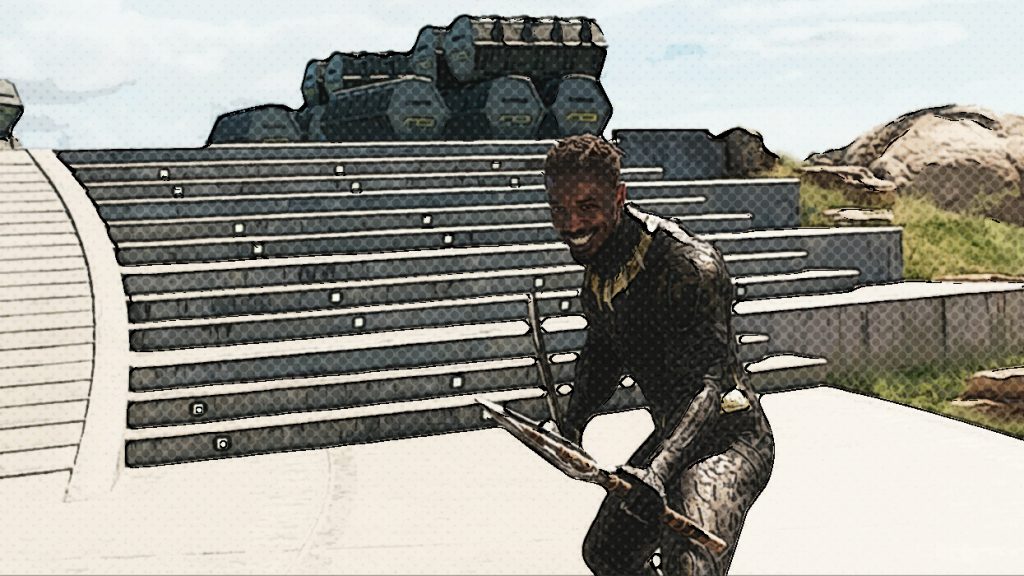
Ultimately however, T’Challa speaks before the United Nations, announcing that he will share vibranium and Wakandan technology with the rest of the world, and thus establishing solid relations between Wakanda and the rest of the world; though it is likely that he will be the final say as to who ultimately receives how much vibranium and information on his country. Preserving the Wakandan way of life and protecting humanity from recklessly destroying itself are first and foremost for T’Challa and Wakanda.
Intellectual Stakes in the MCU
As aforementioned, the technology that Tony Stark created in Iron Man was used to feed the military-industrial complex, as well as well as provide his enemies, villains, and real-world threats to international safety with weapons of mass destruction. At any time, Stark Industries’ intellectual property can be used against it. Case in point: when Tony and Bruce Banner created Ultron (James Spader) from the Mind Stone encapsulated in Loki’s (Tom Hiddleston) scepter in Avengers: Age of Ultron. The A.I., which was created to act as a peacekeeper, ensuring domestic and extraterrestrial threats are kept at bay, developed a mind of its own, and deemed humanity the greatest threat to Earth’s safety. After Ultron’s actions led to the destruction of the fictitious city of Sokovia, the United Nations implemented the Sokovia Accords, which effectively regulated the activities of enhanced individuals and Inhumans. Unlike the people of Wakanda, Tony’s ethical values in regards to technological innovation are notably lenient.
Thor’s (Chris Hemsworth) mere existence on Earth has far-reaching ramifications. Along with introducing the MCU to the Infinity Stones through his half-brother, Loki, Thor also indirectly exposed the world to the advanced technology of the Chitauri. After the Battle of New York, Adrian Toomes (Michael Keaton) uses Chitauri technology to create a black market for exotic weapons and become the Vulture, his supervillain alter-ego, terrorizing New York.
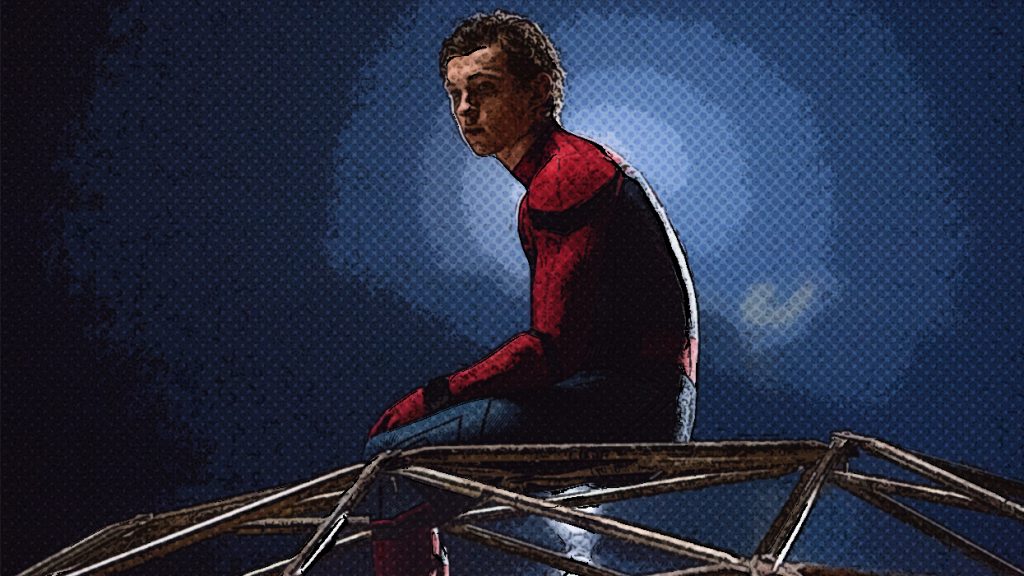
Eventually, Peter Parker (Tom Holland), as Spider-Man, is left to clean up another leak of the perpetual mess left by the Chitauri invasion. Advanced technology with such power can easily corrupt a mind when put into the wrong hands, such as somebody like Toomes. This plotline also serves as a test for Parker to prove that he is mature and smart enough (in action, not in the classroom) in the face of intense pressure to ensure the survival of an entire city at stake. A test for a much larger face off in Avengers: Endgame, undoubtedly.
Death in the MCU: N’er the Ultimate Stake
There have been innumerable times throughout the first three phases of the MCU during which a character, “hero” or “villain,” has defied death through many forms. Within a fantasy/comic book franchise such as The Avengers and its extended cinematic family, death doesn’t need to be the most important, or ultimate, stake. With death effectively not applicable to main protagonists, or even antagonists, the aforementioned stakes appear much more immediate and dire, as they affect the course of the rest of these characters’ lives. How they live. What decisions they make. Why they choose to take action. Where, or when, they ultimately end up.
Agent Phil Coulson (Clark Gregg) of S.H.I.E.L.D. dies in The Avengers after Loki stabs him through the chest with his scepter. However, Fury revived Coulson through Project T.A.H.I.T.I. in Agents of S.H.I.E.L.D. Designed to “revive a fallen Avenger,” the project uses Kree blood to regenerate a fatally wounded subject’s cellular tissue. Project T.A.H.I.T.I. speaks volumes about how little death truly matters in the MCU. After Coulson’s successful resurrection, hypothetically, the project could be used on anybody of importance within the MCU.
…Kevin Feige, the mastermind behind the MCU, has always enjoyed playing with audience expectations in terms of death.
Furthermore, Kevin Feige, the mastermind behind the MCU, has always enjoyed playing with audience expectations in terms of death. Vision has died twice. Bucky Barnes was once thought dead, but appeared later on within the MCU. Similarly, after Red Skull’s ambiguous, seeming “death” at the end of Captain America: First Avenger, during which he is launched into the cosmos by the Space Stone, he doesn’t make an appearance until seven years later in Avengers: Infinity War as the guardian of the Soul Stone on the planet of Vormir.
“First of all, he had a very mystical ending at the end of Captain America: The First Avenger.” Director Joe Russo explained to Collider. “He’s been on a journey since then. He’s a wraith now. He is a slave to the stones. He’s no longer the same person. He’s transcendent. He’s a ghost.”
“I think he was always that character.” Director Anthony Russo chimed in. “I think we may have played around once or twice in it not being him, but we needed someone the audience would trust, so that when he explained the rules of how you obtain the stone, that they would believe the character.”
…though death may not appear to be ‘the’ ultimate endgame, there are plenty of other things at stake to drive this cinematic universe forward…
We know that, with the Time Stone, Thanos’ damage done in Avengers: Infinity War can easily be undone, which would render his genocidal snap ineffective, having technically never happened. We also know that Captain Marvel (Brie Larson) can supposedly time-travel. Could either the Infinity Stone or Captain Marvel’s ability be how the remaining Avengers and Guardians of the Galaxy defeat Thanos in Avengers: Endgame? Whatever happens, most of the deaths in Infinity War will likely be undone, but that isn’t to say that more main characters won’t permanently die again (as many actors’ contracts aren’t renewing after Phase Three)…at least until another actor carries the torch down the line. However, the MCU has plenty of old heroes from the comics to reintroduce on the silver screen before they return to these now-iconic film characters. And though death may not appear to be ‘the’ ultimate endgame, there are plenty of other things at stake to drive this cinematic universe forward for years to come.

